UMES Career and Technology Education Faculty and Staff
Read about our programs and alumni in this UMES news story!
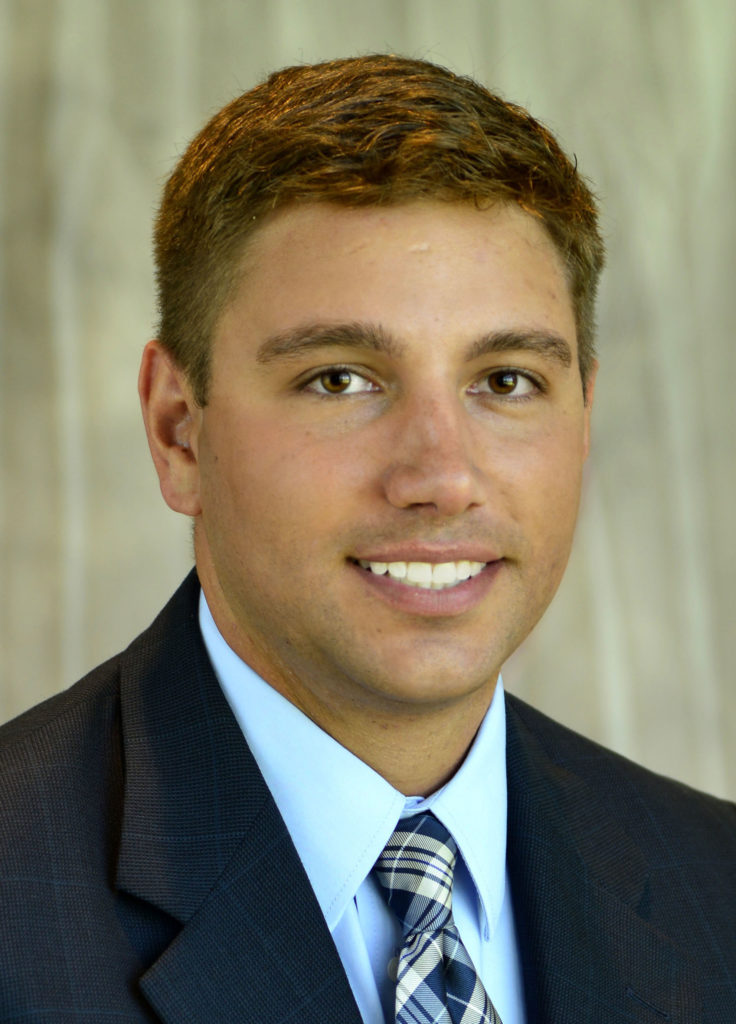
Tyler S. Love, Ph.D., DTE
Professor
Director, Graduate Studies in Career and Technology Education
Coordinator, Undergraduate Technology and Engineering Education
410-727-4808 Ext. 164
More about Tyler S. Love, Ph.D., DTE
Biography
Dr. Love is a Professor and Coordinator of Undergraduate Technology and Engineering Education, and Director of Graduate Studies in Career and Technology Education at the University of Maryland Eastern Shore (UMES). He previously taught technology and engineering (T&E) education in Queen Anne’s County Public Schools and Howard County Public School System. Dr. Love is an Authorized OSHA Trainer for General Industry. He has served on committees at the state and national levels that developed P-12 engineering education standards. Prior to UMES he was an Assistant Professor of elementary/middle grades STEM education Penn State University’s Capital Campus. Dr. Love was an honor’s program student and student athlete (baseball) at UMES where he received his bachelor’s degree in Technology Education.
Education
- Ph.D. – Curriculum and Instruction, Virginia Tech
- MAEd – Curriculum and Instruction, Virginia Tech
- Graduate Certificate – Integrative STEM Education, Virginia Tech
- Graduate Certificate – Higher Education Administration, Virginia Tech
- B.S. – Technology Education, University of Maryland Eastern Shore
Research Interests
- Safety and Risk Management in STEM Education Labs and Makerspaces
- Technology and Engineering Teacher Preparation
- Pedagogical Content Knowledge (PCK) in Technology and Engineering Education
- Physical Computing
Publications
*Below is a list of select publications. Full list available at Google Scholar
Books
- Love, T. S., & Roy, K. R. (2022). Safer engineering and CTE instruction: A national STEM education imperative. International Technology and Engineering Educators Association. https://www.iteea.org/safety
- Roy, K. R., & Love, T. S. (2017). Safer makerspaces, fab labs and STEM labs: A collaborative guide! National Safety Consultants, LLC.
- DeLuca, V. W., & Haynie, W. J. (2014). Designing safer learning environments for integrative STEM education (4th ed., revised by T. S. Love & K. R. Roy). International Technology and Engineering Educators Association.
Recent Book Chapters
- Love, T. S., & Roy, K. R. (2023). Considerations in the development of STEL-aligned professional development guidelines. In S. R. Bartholomew, M. C. Hoepfl, & P. J. Williams (Eds)., Standards-Based Technology and Engineering Education: 63rd Yearbook of the Council on Technology and Engineering Teacher Education (pp. 95-116). Springer Nature. https://doi.org/10.1007/978-981-99-5704-0_6
Recent Articles
- Love, T. S., & Love, T. (accepted). Informed design considerations for modified ride-on cars. Technology and Engineering Education.
- Love, T. S. (in press). Safety issues and accident occurrences reported by P-12 engineering educators in the middle Atlantic United States. Career and Technical Education Research.
- Love, T. S. (2024). Safety in P-12 engineering courses within the southern United States. Journal of Pre-College Engineering Education Research (J-PEER), 14(2), Article 1. https://doi.org/10.7771/2157-9288.1425
- Love, T. S. (2024). A closer look at the relationship between course enrollment size and accident occurrences in hands-on engineering design-based STEM courses. International Journal of Technology and Design Education. https://doi.org/10.1007/s10798-024-09910-9
- Love, T. S. (2024). Practitioner journals: An integral component for advancing research, knowledge, practices, and discussion in STEM education. Journal of Technology Studies, 49(1), 1-7. https://doi.org/10.21061/jts.414
- Love, T. S., Roy, K. R., West, S. S. (2024). A call to prioritize safety in STEM and CTE: Addressing overcrowded classes and other critical safety issues. Laboratories, 1(1), 52-58. https://doi.org/10.3390/laboratories1010003
- Manusos, D., Sutton, K., & Love, T. S. (2024). Low-temperature metal casting using laser cut molds. Technology and Engineering Education, 1(3), 15-20.
- Love, T. S., Lee, D., & Napoli, M. (2024). Integrating science concepts through poetry: A study comparing online and face-to-face teaching methods courses for pre-service elementary educators. Journal of Science Education and Technology, 33(1), 57-67. https://doi.org/10.1007/s10956-023-10073-w
- Love, T. S., Threeton, M. D., & Roy, K. R. (2023). A safety study on educators of technological and engineering design-based instruction in K-12 STEM related courses. Journal of Technology Education, 35(1), 32-52. https://doi.org/10.21061/jte.632
- Love, T. S., & Roy, K. (2023). A study of safety issues and accidents in secondary education construction courses within the United States. Sustainability, 15(14), 11028. https://doi.org/10.3390/su151411028
- Love, T. S. (2023). Embedding safety in integrative STEM teaching methods courses for pre-service elementary educators. Journal of Technology Education, 34(2), 22-42. https://doi.org/10.21061/jte.v34i2.a.2
- Hughes, A. J., Love, T. S., & Dill, K. (2023). Characterizing highly effective technology and engineering educators. Education Sciences, 13(6), 560, 1-11. https://doi.org/10.3390/educsci13060560
- Love, T. S. (2023). Examining middle school students’ attitudes toward computing after participating in a physical computing unit. Interactive Learning Environments. https://doi.org/10.1080/10494820.2023.2194326
- Love, T. S., Napoli, M., & Lee, D. (2023). Examining pre-service elementary educators’ perceptions of integrating science instruction using poetry. School Science and Mathematics, 123(2), 42-53. https://doi.org/10.1111/ssm.12569
- Love, T. S., Roy, K. R., & Sirinides, P. (2023). A national study examining safety factors and training associated with STEM education and CTE laboratory accidents in the United States. Safety Science, 160(106058), 1-13. https://doi.org/10.1016/j.ssci.2022.106058
- Love, T. S., & Roy, K. R. (2023). Critical safety considerations to support CTE. ACTE Techniques, 98(1), 32-35. https://www.acteonline.org/tech-safety-practices/
- Love, T. S., & Love, Z. J. (2023). The teacher recruitment crisis: Examining influential recruitment factors from a United States technology and engineering teacher preparation program. International Journal of Technology and Design Education, 33(1), 105-121. https://doi.org/10.1007/s10798-022-09727-4
- Love, T. S., Cysyk, J., Attaluri, A., Tunks, R. D., Harter, K., & Sipos, R. (2023). Examining science and technology/engineering educators’ views of teaching biomedical concepts through physical computing. Journal of Science Education and Technology, 32(1), 96-110. https://doi.org/10.1007/s10956-022-09996-7
- Love, T. S., & Asempapa, R. (2022). A screen-based or physical computing unit? Examining secondary students’ attitudes toward coding. International Journal of Child-Computer Interaction, 34(100543), 1-16. https://doi.org/10.1016/j.ijcci.2022.100543
- Love, T. S., Bartholomew, S. R., & Yauney, J. (2022). Examining changes in teachers’ beliefs toward integrating computational thinking to teach literacy and math concepts in grades K-2. Journal for STEM Education Research, 5, 380-401. https://doi.org/10.1007/s41979-022-00077-3.
- Love, T. S., Roy, K. R., Gill, M., & Harrell, M. (2022). Examining the influence that safety training format has on educators’ perceptions of safer practices in makerspaces and integrated STEM labs. Journal of Safety Research, 82, 112-123. https://doi.org/10.1016/j.jsr.2022.05.003
- Love, T. S., Attaluri, A., Tunks, R. D., Cysyk, J. & Harter, K. (2022). Examining changes in high school teachers’ perceptions of utilizing 3D printing to teach biomedical engineering concepts: Results from an integrated STEM professional development experience. Journal of STEM Education: Innovations and Research, 23(2), 30-38. https://www.jstem.org/jstem/index.php/JSTEM/article/view/2573
- Love, T. S., & Hughes, A. J. (2022). Engineering pedagogical content knowledge: Examining correlations with formal and informal preparation experiences. International Journal of STEM Education, 9(29), 1-20. https://doi.org/10.1186/s40594-022-00345-z
- Love, T. S. (2022). Examining the influence that professional development has on educators’ perceptions of integrated STEM safety in makerspaces. Journal of Science Education and Technology, 31(3), 289-302. https://doi.org/10.1007/s10956-022-09955-2
- Love, T. S., & Maiseroulle, T. (2021). Are technology and engineering educator programs really declining? Reexamining the status and characteristics of programs in the United States. Journal of Technology Education, 33(1), 4-20. https://doi.org/10.21061/jte.v33i1.a.1
Recent Conference Papers
- Jayachandran, D., Maldikar, P., Love, T. S., & Blum, J. J. (2024). Leveraging generative artificial intelligence to broaden participation in computer science. Proceedings of the AAAI 2024 Spring Symposium Series, 3(1), 486-492. https://doi.org/10.1609/aaaiss.v3i1.31262
- Love, T. S., Hutzel, B., & Brusic, S. (2023). An overview of state developed P-12 standards for technological and engineering literacy. Paper presented at the Annual Conference and Exposition of the American Society for Engineering Education, Baltimore, MD. https://peer.asee.org/42641
- Love, T. S., & Roy, K. R. (2023). Safety factors and accidents in P-12 pre-engineering and engineering design courses: Results from a national study. Paper presented at the Annual Conference and Exposition of the American Society for Engineering Education, Baltimore, MD. https://peer.asee.org/44178
- Love, T. S., & Hughes, A. J. (2023). A physical computing professional development study: Examining differences in male and female teachers’ attitudes toward computing. Paper presented at the Annual Conference and Exposition of the American Society for Engineering Education, Baltimore, MD. https://peer.asee.org/42458
- Hughes, A. J., & Love, T. S. (2023). Student success during educator scaffolded engineering design experiences. Paper presented at the annual meeting of the American Educational Research Association, Chicago, IL.
- Love, T. S. (2022). Accident occurrences and safety issues reported by mid-Atlantic P-12 engineering education programs. Paper presented at the Annual Conference and Exposition of the American Society for Engineering Education: Middle Atlantic Section, Harrisburg, PA. https://peer.asee.org/44676
- Reed, P. A., Dooley, K., Love, T. S., & Bartholomew, S. R. (2022). Overview of standards for technological and engineering literacy. Paper presented at the Annual Conference and Exposition of the American Society for Engineering Education, Minneapolis, MN. https://peer.asee.org/41253
- Love, T. S., & Rajyaguru, J. (2022). Integrating computational thinking and engineering practices to teach STEM: Examining students’ attitudes about physical computing. Paper presented at the 95th Annual Meeting of the National Association for Research and Science Teaching, Vancouver, Canada.
- Love, T. S., Sirinides, P., & Roy, K. R. (2022). Examining factors associated with accidents in CTE and STEM education labs: A national safety study. Paper presented at the annual meeting of the American Educational Research Association, San Diego, CA. https://doi.org/10.3102/1888047
Grants and Sponsored Research
- Blum, J. J. (P.I.), & Love, T. S. (Co-P.I.). (2023-2025). Leveraging generative artificial intelligence to broaden participation in competitive programming. Inter-Institutional Program for Diversifying Research grant, The Pennsylvania State University. ($20,000).
- Wilburne, J. (P.I.), Mareno, A., Asempapa, R. S., & Love, T. S. (Co-P.I.). (2022-2027). Project PRIDE: Preparing and retaining secondary mathematics teachers who implement diversity and equity practices in high-need schools. Robert Noyce Scholarship Program grant, National Science Foundation (Award No. 2151091). ($1,200,000).
- Love, T. S. (P.I.), & Asempapa, R. S. (Co-P.I.). (2022). Teaching financial literacy through mathematical modeling. Link Foundation. ($10,000).
- Love, T. S. (P.I.). (2021). A research, teaching, and professional development GRA mentorship experience in STEM education. Graduate Research Experience and Training grant, The Pennsylvania State University. ($29,000).
- Love, T. S. (P.I.)., Cysyk, J., Tunks, R., Harter, K., & Attaluri, A. (Co-P.I.). (2021). Using physical computing to teach how a heart functions: A professional development experience for high school biology and engineering teachers. Commonwealth Campus Center Nodes grant, The Pennsylvania State University. ($34,000).
- Love, T. S. (P.I.)., Asempapa, R. S., & Roufos-Abbey, N. (Co-P.I.). (2021). Teaching standards-based mathematical modeling, science, and engineering concepts through open-ended 3D printing design challenges. K-12 Project Based Learning grant, Lancaster County STEM Alliance. ($5,000).
Awards and Honors
- International Technology and Engineering Educators Association (ITEEA) Council on Technology and Engineering Teacher Education (CTETE): Silvius-Wolansky Outstanding Publication Award – 2024
- The 1909 Conference: Advancing Thought, Research, and Practice in T&E Education Outstanding Publication Award presented by the Technical Foundation of America – 2023
- ITEEA’s Council for STEM Leadership (CSL): Outstanding Local Leader Award – 2023
- American Society for Engineering Education (ASEE) Best Paper Award from the Fall Mid-Atlantic Section Conference – 2022
- ITEEA: Distinguished Technology and Engineering Educator (DTE) – 2022
- ITEEA’s CTETE: Outstanding Research in Technology Education Award – 2022
- ITEEA’s CTETE Gerhard Salinger Award for Enhancing STEM Education through Technological/Engineering Design-Based Instruction – 2020
- ITEEA’s Special Recognition Award for Outstanding Service – 2020
- CareerSafe® Safety Educator of the Year Award presented ACTE Career Vision – 2018
- ITEEA’s Dr. Gerald Day Excellence in Authorship Award: Top Peer-Reviewed Article by a University/Classroom Teacher Team – 2017
- Technology and Engineering Educators Association of Maryland (TEEAM) State Leadership Award – 2017
- UMES “Ductus Exemplo” Distinguished Alumnus Award – 2015
- ITEEA’s CTETE Silvius-Wolansky Outstanding Publication Award – 2015
- Technology and Engineering Education Association of Pennsylvania (TEEAP) Dr. Nevin Andre Outstanding TEEAP Journal Article Award – 2014
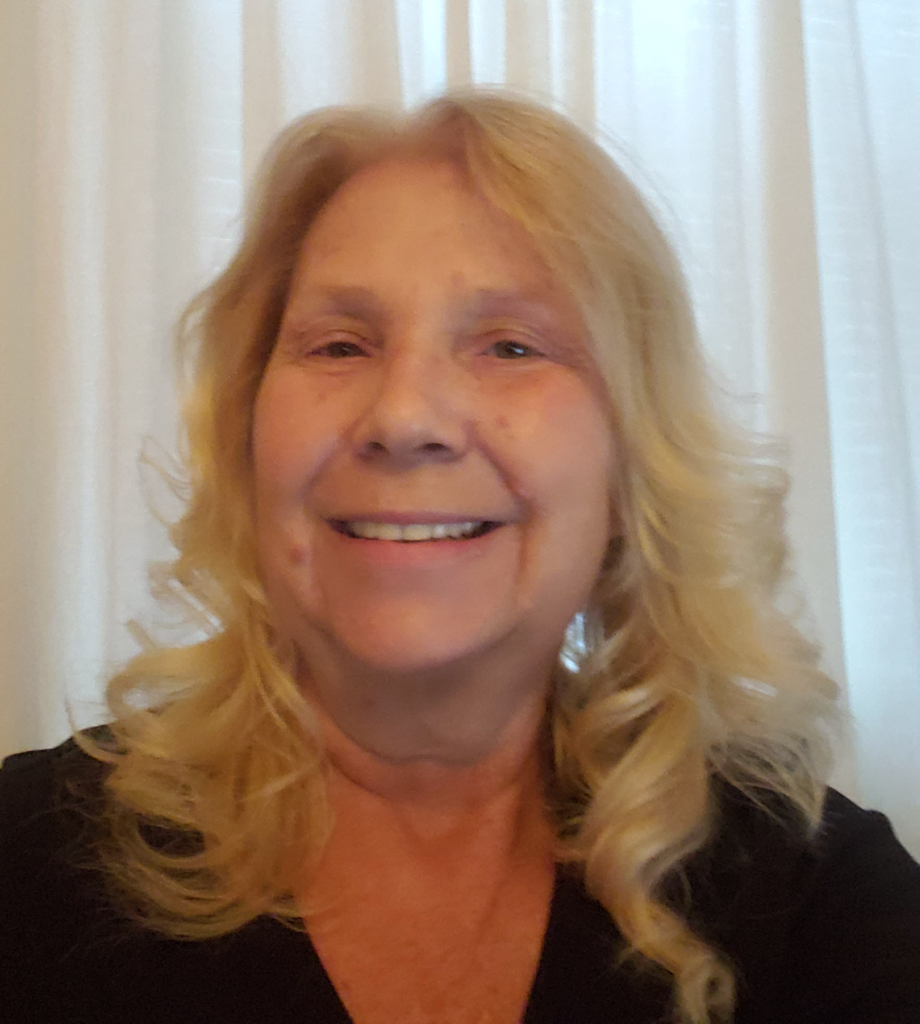
JoAnn Eliff
Administrative Assistant
Undergraduate and Graduate Studies in Career and Technology Education
410-727-4808 Ext. 164
More about JoAnn Eliff
Biography
JoAnn Eliff has served as an administrative assistant for UMES at BMI for over 20 years. She assists students with questions related to our CTE, WBL, and PTE courses. She previously worked at the Center of Applied Technologies North for Anne Arundel County Public Schools.
Education
Information forthcoming.
Awards and Honors
Technology and Engineering Educators Association of Maryland (TEEAM): Distinguished Service Award – 2024

More about Dorothy Brown
Biography
Dorothy Brown serves as an instructor of undergraduate and graduate level WBL courses. She served in elementary educator, middle school educator, special education department chair person, and work-based learning coordinator roles in Maryland’s public school systems for over 30 years. She also served as a teacher specialist at the central office level leading initiatives focused on community partnerships and business community collaborations with school systems. She played a pivotal role in training school administrators, educators, and employers on work-based learning experiences to benefit students across Anne Arundel county.
Education
- M.S. – Johns Hopkins University
- B.S. – Towson University
Awards and Honors
Served as a member of the Local Labor Market Team to address educational issues for Anne Arundel County Public Schools, Anne Arundel Community College, and local businesses.
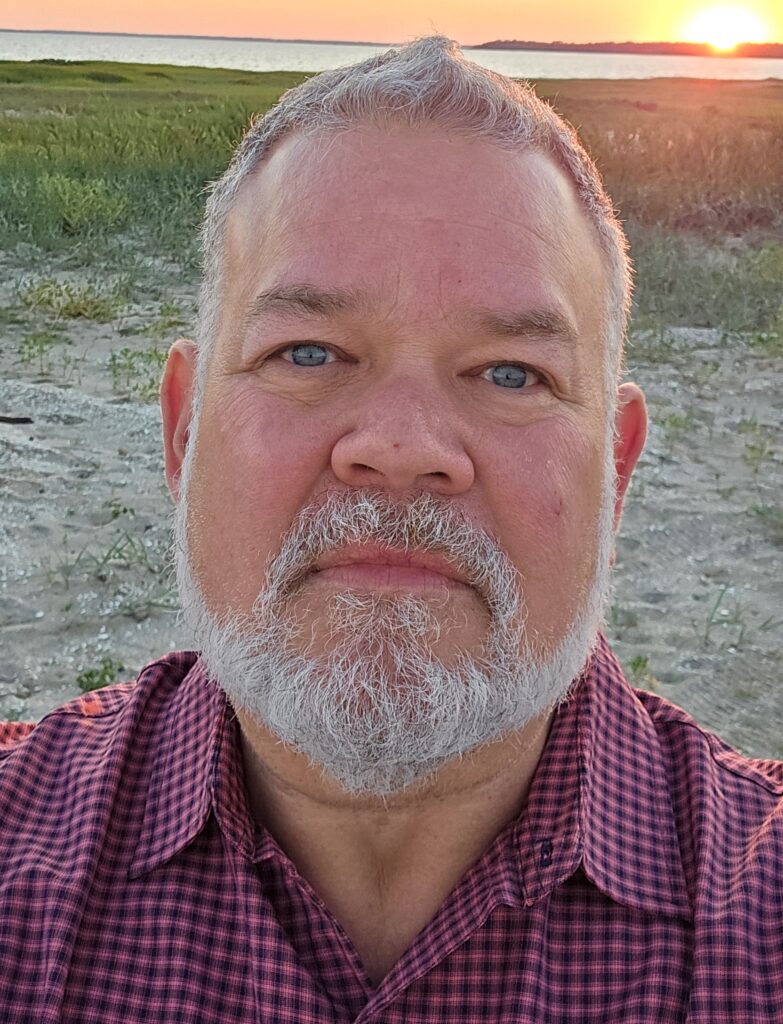
More about Jeremy Brown
Biography
Jeremy Brown serves as a Work-Based Learning Coordinator for Frederick County Public Schools (FCPS) at Linganore High School (LHS). Mr. Brown began his work at LHS as Team Leader/Project Coordinator for a USDE Smaller Learning Communities grant to develop and implement a first-year student and career related academy program. Mr. Brown teaches multiple levels of Career Research and Development course work, including dual enrollment. He supervises students in Work Study, Mentor-Internship, Student Service Learning, and Youth Apprentice programs. He is the FCPS Youth Apprentice Teacher Coordinator. He serves on a number of county, regional, and state committees and advisory groups.
Outside his roles in FCPS, he currently serves on the Board of Directors for the Center for Dependable Strengths and the Maryland Association of Student Councils. He is a past director on the Board for the James Madison University Alumni Association. He is an adjunct professor at Frederick Community College. When not working, he is an active traveler and serves as a volunteer for the Olympic Games.
Education
- M.Ed. – Secondary Education, James Madison University
- B.A. – History & Secondary Education, James Madison University
- B.S. – Social Science, James Madison University
- MSDE Endorsement – Work-Based Learning Coordinator, University of Maryland Eastern Shore
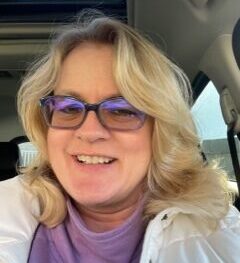
More about Alicia Fales
Biography
Alicia Fales has been a supervisor of CTE teachers across 26 high schools in Baltimore County Public Schools (BCPS) since 2009. She oversees work-based learning, career and research development, and other programs in BCPS’s CTE office which includes responsibility for curriculum and professional development. She has participated with the Maryland State Department of Education (MSDE) designing plans for the implementation of the youth apprenticeship and career research and development programs. She taught at the secondary level in Maryland and Georgia and in the teacher preparation program at Notre Dame of MD University. Alicia has her Work-Based Learning Coordinator Endorsement and Administrator I Certificate from MSDE.
Education
- M.A. – Leadership in Teaching: Concentration in Administration and Supervision, Notre Dame of Maryland University
- B.A. – Secondary English Education, Notre Dame of Maryland University
Publications and Presentations
- ACTE WBL Conference Presentation – “AMP: Building Pathways and Reducing Barriers through Youth Apprenticeships”
- ACTE Conference Presentation – “High Quality Work-Based Learning”
Awards and Honors
- Lavinia Wenger Award for Excellence in Secondary Education, Notre Dame of MD University
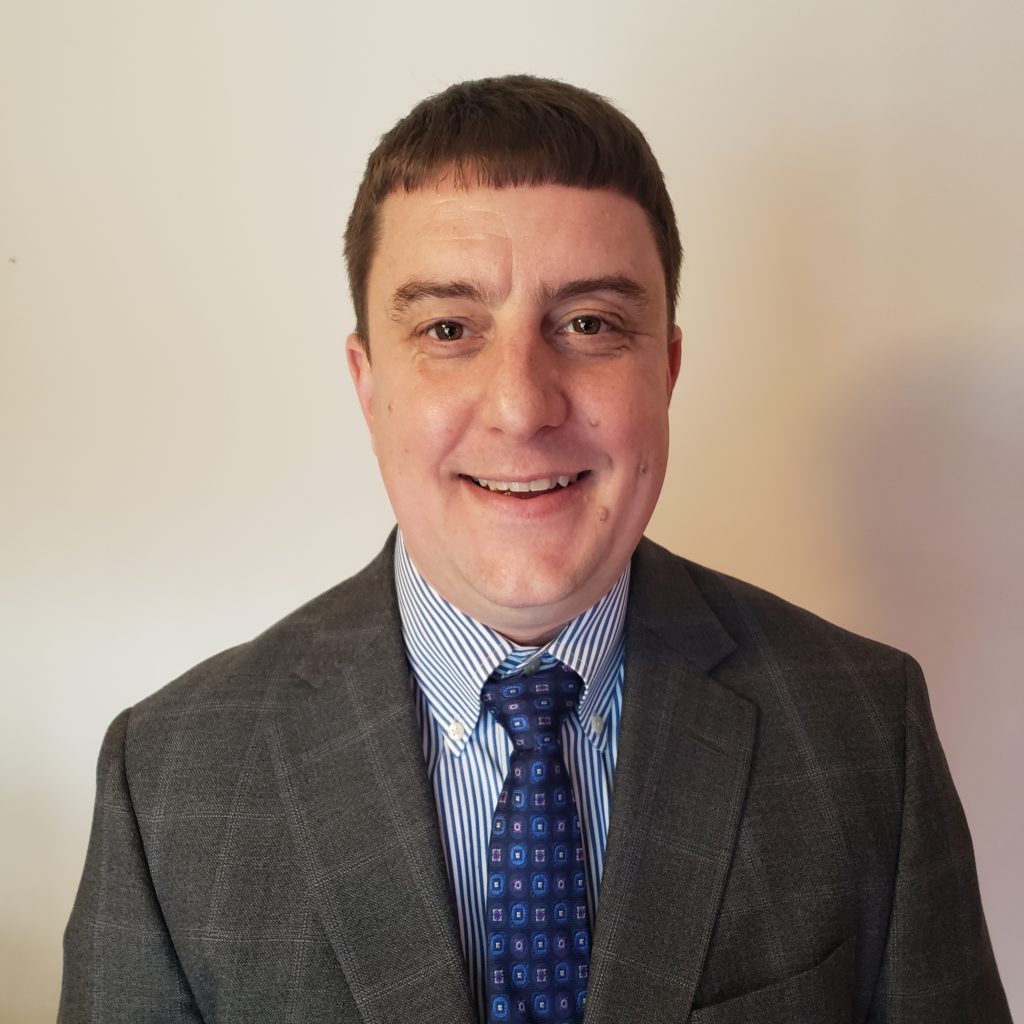
More about Melvin Gill, DTE
Biography
Melvin Gill is the Technology & Engineering Department Chair at Chesapeake High School in Anne Arundel County. Previously, Mr. Gill was the Technology & Engineering Education Department Chair at Meade High School from 2010 to 2022 and taught in the department since August 2005. He earned his undergraduate degree in Technology Education and a Master of Education in Career and Technology Education from UMES. Melvin has taught several different courses for UMES since July of 2012. In addition to teaching, Mr. Gill serves as the International Technology and Engineering Educator’s Association’s (ITEEA) state champion for Maryland.
Education
- M.Ed. – Career and Technology Education, University of Maryland Eastern Shore
- B.S. – Technology Education, University of Maryland Eastern Shore
Research Interests
- Safety in T&E Labs
- T&E Teacher Preparation
Publications and Presentations
- Gill, M. (2023). Effective technology & engineering practices. Technology and Engineering Education, 1(2), 31-36.
- Love, T. S., Roy, K. R., Gill, M., & Harrell, M. (2022). Examining the influence that safety training format has on educators’ perceptions of safer practices in makerspaces and integrated STEM labs. Journal of Safety Research, 82, 112-123. https://doi.org/10.1016/j.jsr.2022.05.003
- Gill, M., & Love, T. S. (2021). Laser focused on laser engraver/cutter safety. Technology and Engineering Teacher, 80(5), 21-23.
- Love, T. S. & Gill, M. (2020, October). Maryland’s results from the 2020 T&E education safety survey. Presentation at the annual meeting of the Technology and Engineering Educators Association of Maryland, Virtual Conference.
- Gill, M., Koperski, K, Love, T. S., & Roy, K. R. (2019). Developing a culture of safety through departmental planning. Technology and Engineering Teacher, 79(1), 22-25.
- Gill, M. (2019). What do new technology and engineering teachers need to know? Technology and Engineering Teacher, 78(7), 14-18.
Awards and Honors
- International Technology and Engineering Association (ITEEA): Distinguished Technology and Engineering Educator (DTE) – 2024
- ITEEA: Professional Recognition Award, Outstanding Affiliate Representative – 2021
- Anne Arundel County Public Schools: STEM Teacher Fellow Award – 2021
- Anne Arundel County Public Schools: STEM Teacher Fellow Award – 2020
- ITEEA: Emerging Leader – 2019
- ITEEA: Teacher Excellence Award – 2017
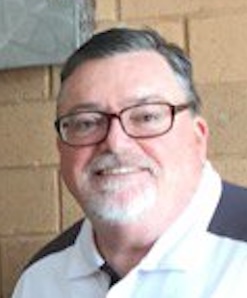
More about Charles Hagan
Biography
Charles Hagan serves as an instructor of undergraduate and graduate level CTE and PTE courses. He served as a principal and assistant principal at Harford County Technical School in Harford County, Maryland.
Education
- M.S. – Secondary Education, Towson University
- B.S. – Physical Education, Towson University
Awards and Honors
- Executive Board Member for the Maryland Association of Secondary School Principals (MASSP) from 2010-2013
- Completed the Maryland State Department of Education’s Leadership Academy
- Co-presenter at Association of Career and Technical Education conferences
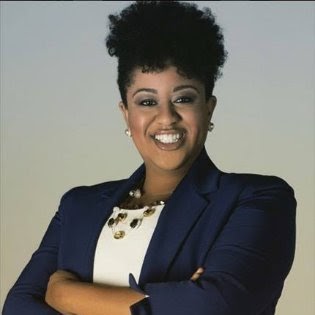
Candice Mott
Instructor
Work-Based Learning
TBA
More about Candice Mott
Biography
Candice Mott, a seasoned career and technical educator, leader, and advocate, is deeply committed to ensuring students’ success at the secondary and post-secondary levels. Her current role at the Office of the State Superintendent of Education (OSSE) in Career and Technical Education (CTE) involves supporting District of Columbia (DC) secondary programs of study and career and technical student organizations (CTSOs). Her active membership in the American Association of Family and Consumer Sciences (AAFCS), the Association for Career and Technical Education (ACTE), and the CTE Research Network advisory board underscore her dedication to CTE and her strong connections to industry and other community stakeholders. Her work is not just a profession but a meaningful way to live, work, and serve DC. Beyond her professional work, Candice is a proud mother to a 17-year-old daughter, Jamison, who shares her passion for advocating for students and a better society.
Education
- M.Ed. – Curriculum and Instruction, Middle Tennessee State University
- B.S. – Family and Consumer Science, University of Memphis
Awards and Honors
- Inclusion, Access, Equity, and Diversity Fellow (2021), Association for Career and Technical Education
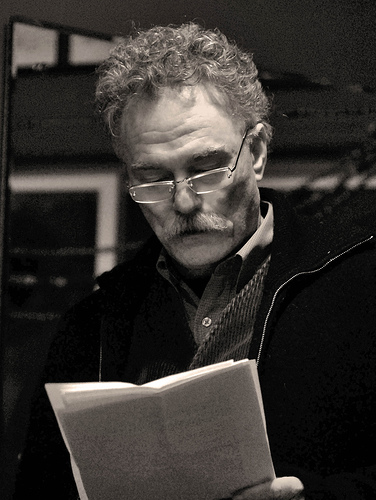
More about Alan Reese
Biography
Alan C. Reese is the author of the chapbook Reports from Shadowland. His poetry, essays, and reviews have appeared in Smartish Pace, Gargoyle, The Blue Mountain Review, The Baltimore Sun, Maryland Poetry Review, Potomac Review, Delaware Review, Welter, Grub Street, Attic, Bicycle Review, Danse Macabre, and the Loch Raven Review. He was the editor and founder of Dancing Shadow Review and the president of Abecedarian Books, Inc., a small press publisher for ten years. He served as the president of the Harford Poetry Society for two years. He taught for 18 years and served as the Gifted and Talented Resource Teacher for middle schools in Baltimore County. Additionally, he has taught classes and inservice courses in reading and writing for MCCTES, CCBC, Towson University, and UMES for over 15 years.
Education
- Master’s Equivalency, Baltimore County Public Schools
- B.A. – English and Education, Towson University


